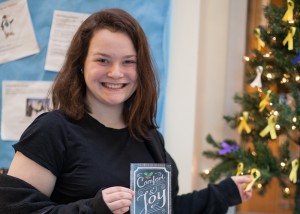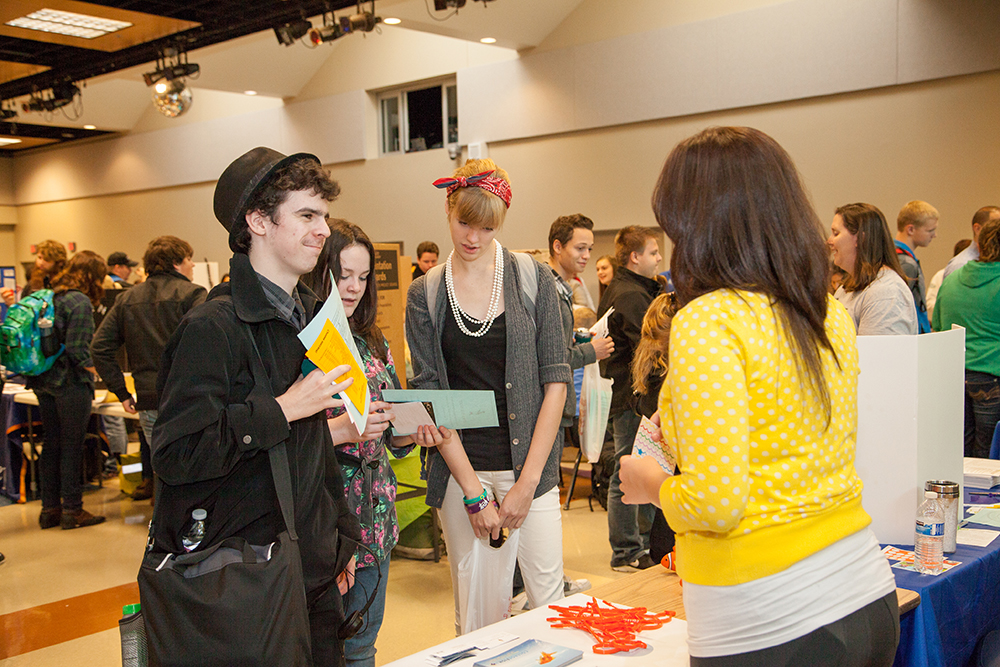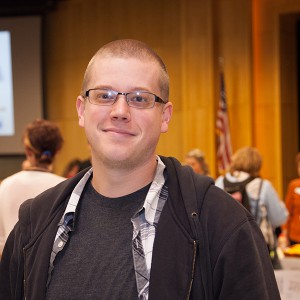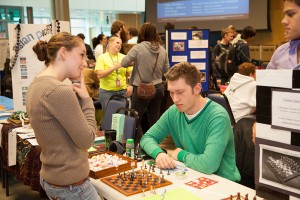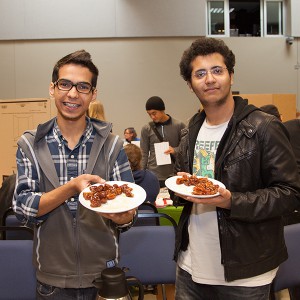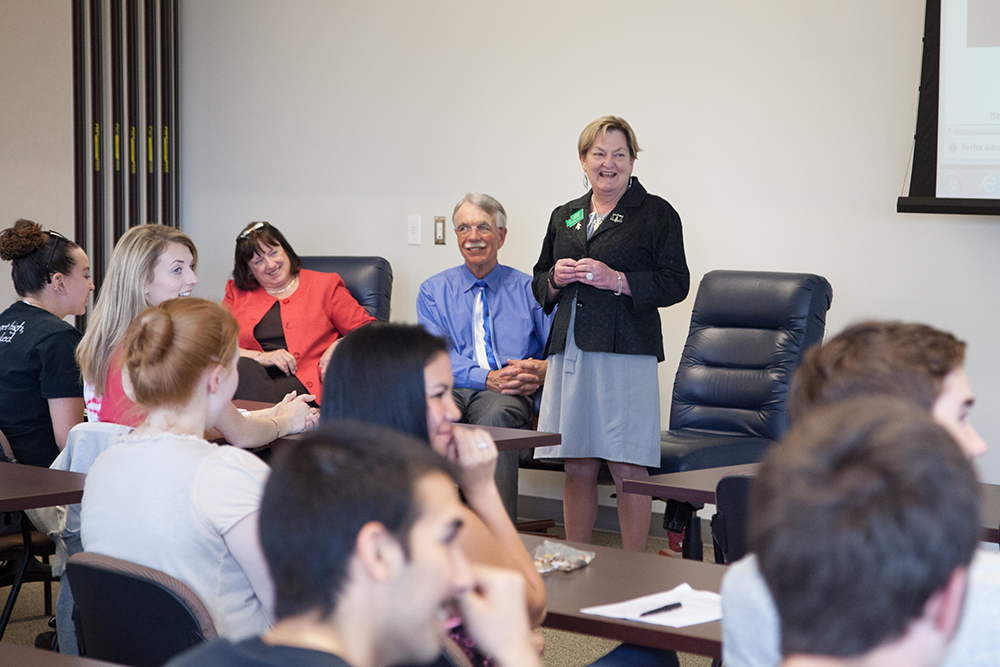
Washington State Supreme Court Justice Susan Owens, standing, answers questions from students in Clark’s Business Law class, which she visited with Chief Justice Barbara Madsen and Associate Chief Justice Charles Johnson.
In 2012, the Clark College Law Club took a field trip to Olympia, where they visited both the State Legislature and the State Supreme Court. While there, paralegal student Richard Thomas got the chance to chat with then-Justice James Johnson, who retired from the court last month.
“Justice Johnson and I were talking, and I asked him, ‘Does the court ever go out and visit places around the state?'” recalled Thomas. “And he said, ‘Yes! We love going on the road. The problem is, we have to be invited.’ So I came back here the next day and started trying to get this going.”
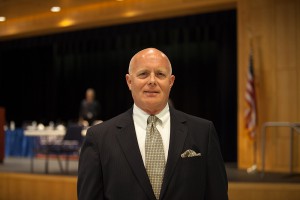
Clark Law Club member Richard Thomas helped make the Washington Supreme Court’s visit a reality.
Two years later, Thomas’s efforts—along with those of the rest of the Law Club and the college itself—resulted in the Washington State Supreme Court spending two days at Clark College. The nine justices visited classrooms, met with members of the community, and heard three cases during their time at the college. Justice Mary Yu, who had been appointed by Gov. Jay Inslee but not yet sworn in at the time of the visit, also attended many of the events, including an open forum.
Many students from Clark’s highly regarded Paralegal program attended the open forum, gaining career advice from the member of the highest court in the state. The justices were emphatic about the importance of paralegals in their work.
“A paralegal really is part of the team,” said Justice Mary Fairhurst, who spent 16 years working in the Washington Attorney General’s Office before becoming a judge. “We couldn’t do our job without them.”
“A good paralegal is a little bit like a fortune teller,” added Justice Yu. “Somebody who knows which deadlines are coming and makes sure everything’s taken care of to meet them. That is so helpful to the lawyers.”
The court heard three cases in Gaiser Student Center on the second day of their visit: one on whether or not drug court staffing should be presumptively open to the public; the disciplinary case of a lawyer; and a case questioning whether or not past acts of domestic violence were admissible evidence in assessing the credibility of an alleged victim. Joining the court to hear these cases was Justice Pro Tem Joel Penoyar, who was temporarily filling Justice James Johnson’s seat until Justice Yu was sworn in.
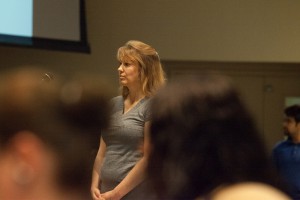
Clark paralegal student Becky Pomaville listens as Washington State Supreme Court justices answer her question about appellate law.
The justices took questions from the courtroom audience after two of the hearings. “There are hardly any lawyers in this area who practice appellate law,” said Clark paralegal student Becky Pomaville. “What is it that makes it so difficult?”
“That’s true, though of course there are some,” replied Justice Debra Stephens, who practiced appellate law for many years. “The beauty of being an appellate lawyer is that you don’t often have to go to court very often. You can do it from your deck chair, so to speak. … What makes an excellent appellate lawyer is a study of where the court is headed. If you’re interested in that, I hope you do pursue it.”
Afterward, Pomaville said she was heartened by Justice Stephens’ words. She hopes to continue on to law school after graduating from Clark, hopefully in spring 2015, and to specialize in appellate law. Surprisingly, just six months previously, Pomaville hadn’t even considered going to college. “When I graduated from high school, I got a bunch of scholarships, but I didn’t complete college,” she said. “I joke that I got my ‘MRS’ degree instead.”
But when the recently single mother of eight stopped by Clark’s Career Center for some job-hunting help, she noticed a poster for the college’s Eligibility Programs that mentioned tuition assistance for displaced homemakers.
“I hadn’t even thought of the possibility of coming here,” she said, but stopped by Eligibility Programs and quickly found herself enrolled for winter quarter. Now she is thriving in the Paralegal program. “I am learning a lot. Last term I took a criminal law course and it was really tough—and I enjoyed every minute of it.”
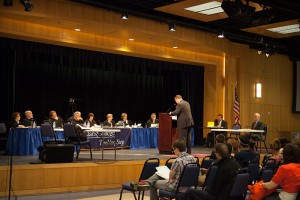
The justices heard three real cases during their visit to Clark.
For paralegal student Richard Thomas, whose offhand question during a field trip resulted in this visit, the event was a fitting way to end his time at Clark; he anticipates graduating this quarter and is hopeful that his current internship may turn into a full-time job. Looking every inch the professional in his suit and tie, he said he valued the opportunity to not only witness the justices hearing cases, but also to spend time socializing with them during private receptions organized by the college during the visit.
“When you have a chance to rub elbows with those who are at the pinnacle of your profession, I think it’s incumbent on you to absorb their experience and their wisdom,” he said. “But then at the same time, once you get to talk with them one-on-one, you realize they’re real people, too.”
Photos: Clark College/Jenny Shadley. For more photos from this event, visit our Flickr album.
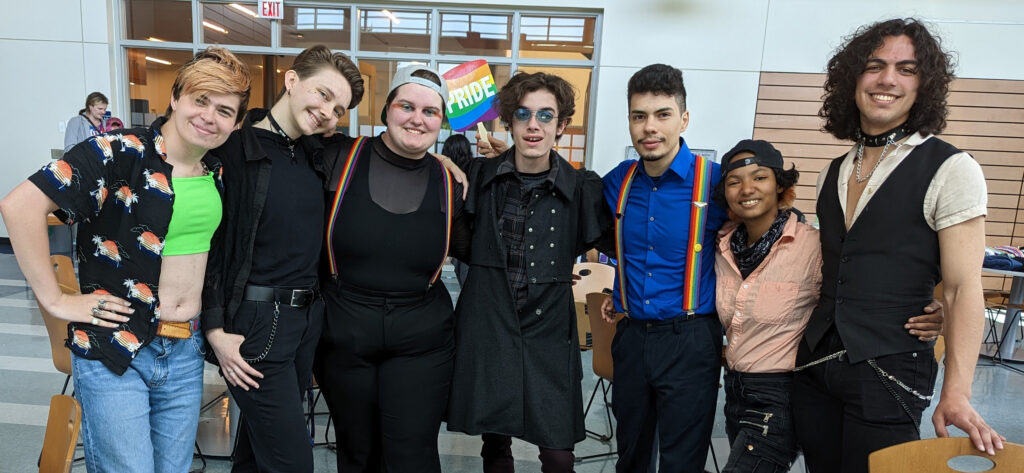
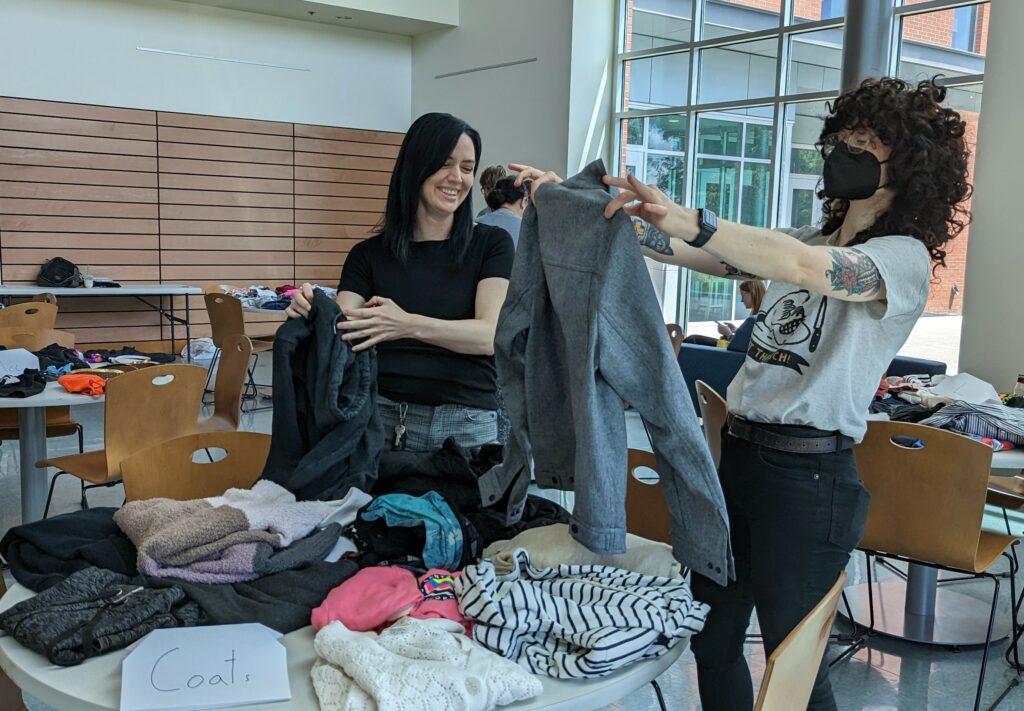
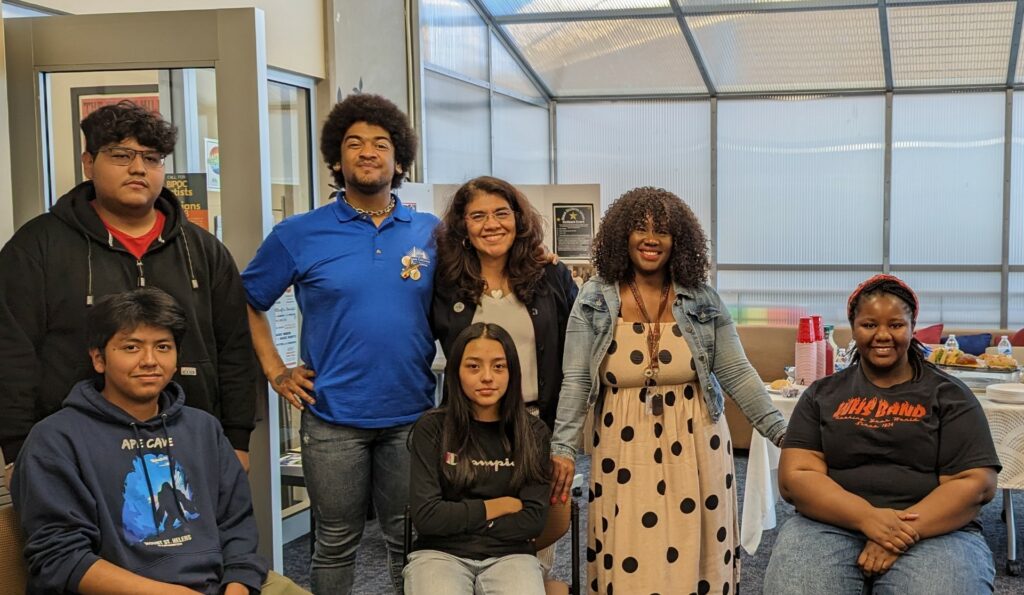

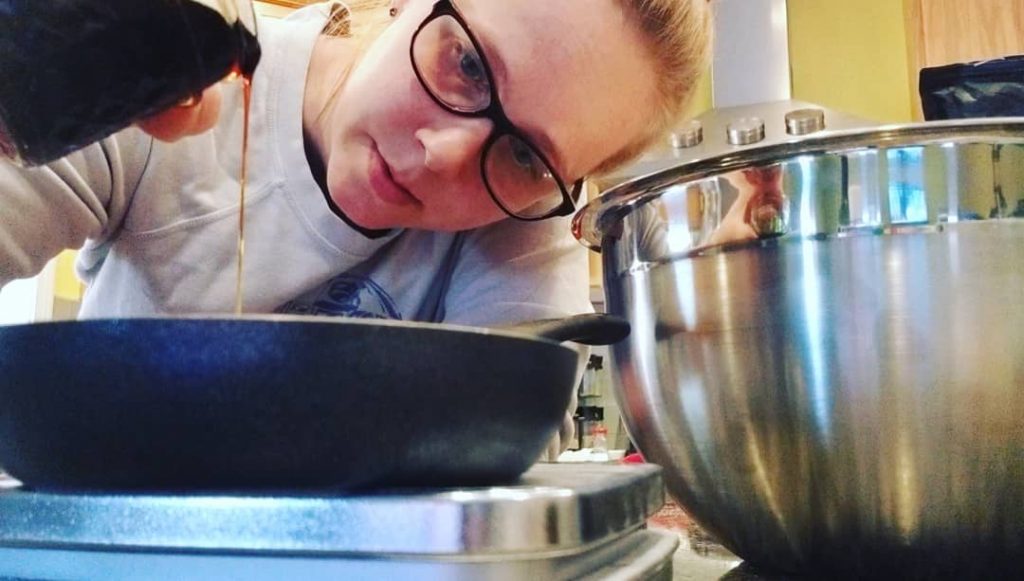
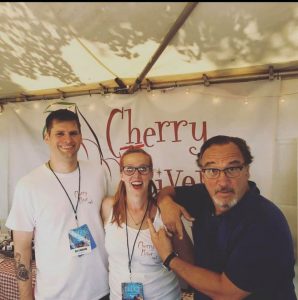
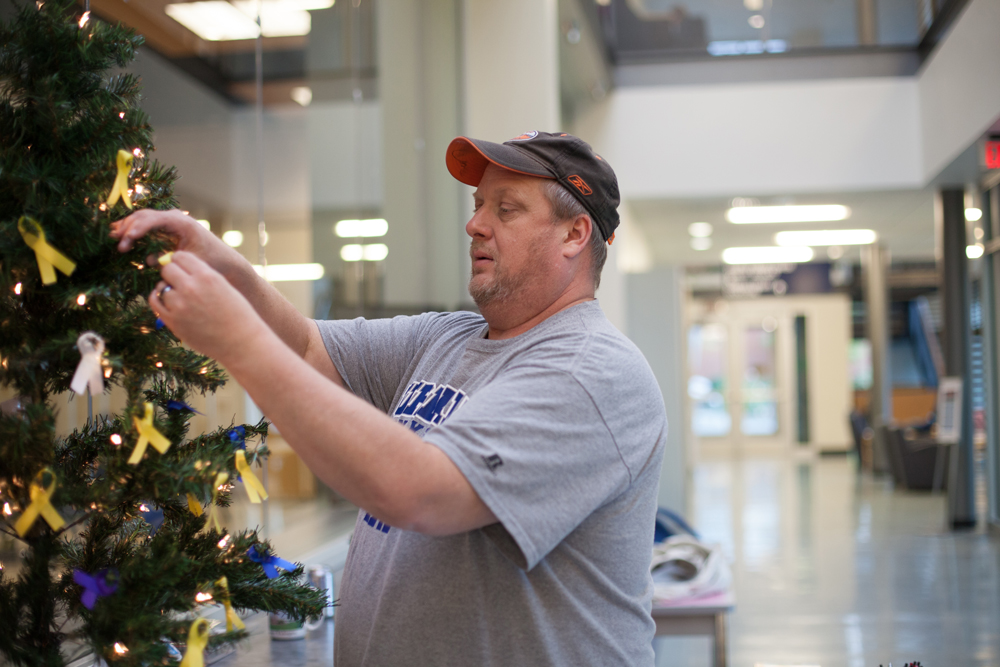
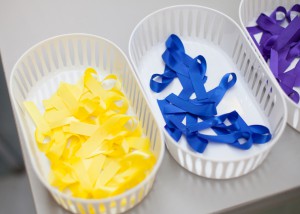 Ribbons are color-coded.
Ribbons are color-coded.